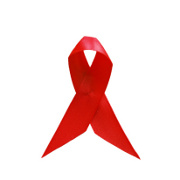 Photo: Getty Images
Photo: Getty Images
Human Immunodeficiency Virus (HIV) is an infection that attacks cells in the human immune system. As the virus progresses, the immune system loses its ability to function, which makes the body more vulnerable to other diseases and conditions. One common side effect of the virus is an HIV skin rash.
Rashes can take many forms. One common type of rash is known as a maculopapular rash. The rash consists of many small papules or pimples which may be red or darker in color.
Other skin irritations that may develop in connection with HIV include:
• Fungal infection – Fungi are normally present on our hair, nails, and skin and are a common cause of diaper rash. Fungal infections most often occur in warm, moist areas such as around the groin or in the arm pits. They can also grow at the edge of finger or toenails as well as inside the mouth (thrush).
• Molluscum contagiosum – This virus is from the poxvirus family. Lesions or pox most often appear on the face, neck, armpits, arms, and hands but may show up anywhere on the skin. The virus can spread through direct contact with a lesion or through sexual contact.
• Seborrheic dermatitis – This skin condition causes flaky scales to form over oily areas on the skin such as around the hairline, on the scalp, or in the ears. The skin around the patch may appear red.
HIV rashes are common because the immune system is weakened by the virus. HIV targets certain white blood cells that are key components in the immune system. These cells typically help mount a defense to protect the body from foreign or harmful organisms such as viruses, bacteria, and fungi.
As HIV progresses, the number of healthy immune cells decreases. This leaves the body vulnerable to many illnesses including skin conditions and rashes that can multiply and spread more quickly than normal.
There are many over-the-counter (OTC) treatments for skin rashes including hydrocortisone cream that can help control itching. If you have HIV and develop any kind of new rash, contact your HIV doctor for an evaluation. Heat can aggravate a rash, so if possible avoid direct sunlight and hot baths or showers until the rash it gone.
If you develop a new rash, think about any changes you may have made such as eating new foods, using different soaps or lotions. HIV related rashes can also be caused by reactions to medications or to an allergy to a drug.
Most rashes will clear up on their own. But a rash caused by a drug reaction can cause serious complications.
Only a healthcare provider can determine what caused a rash and whether or not it is serious. If you have HIV or think you may have been exposed to HIV, talk to your doctor if you develop a new rash.
Sources:
About.com: AIDS/HIV. HIV Symptoms – What Are They?. Mark Cichocki, RN. Web. October 2, 2011.
http://aids.about.com/od/newlydiagnosed/a/hivsymptom.htm
University of Maryland Medical Center. Early symptomatic HIV infection: Symptom. Web. October 2, 2011.
http://www.umm.edu/ency/article/000603sym.htm
About.com: Aids/HIV. Dealing with an HIV Rash. Mark Cichocki, RN. October 2, 2011.
http://aids.about.com/cs/conditions/qt/rash.htm
University of Maryland Medical Center. Acute HIV infection: Overview. Web. October 2, 2011.
http://www.umm.edu/ency/article/000604.htm
HxBenefit. Maculopapular Rash – Definition, Symptoms, Causes, Differential Diagnosis and Treatment. Web. October 2, 2011.
http://www.hxbenefit.com/maculopapular-rash-definition-symptoms-causes-differential-diagnosis-and-treatment.html#
National Institutes of Health: PubMed Health. Acute HIV Infection. Web. October 2, 2011.
http://www.ncbi.nlm.nih.gov/pubmedhealth/PMH0001629/
Reviewed October 6, 2011
by Michele Blacksberg RN
Edited by Jody Smith






Add a CommentComments
There are no comments yet. Be the first one and get the conversation started!